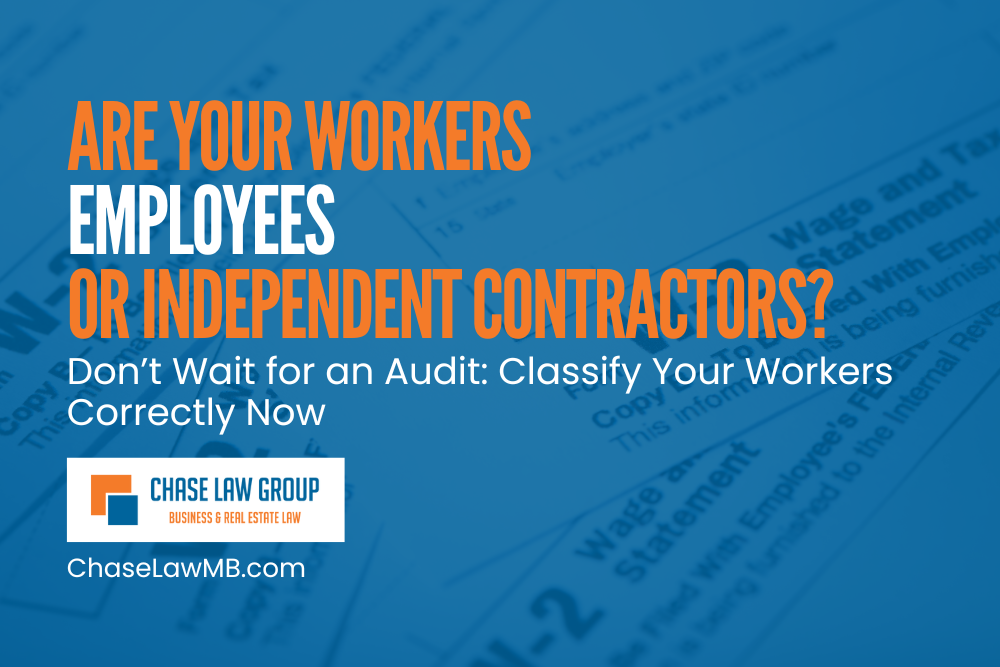
Classifying your workers correctly has never been more important—or more challenging. In California, the distinction between independent contractors and employees continues to evolve, and misclassification can lead to serious legal and financial consequences, including penalties, back pay, and tax liabilities. As we move into 2025, it’s essential for business owners to understand how worker classification is determined and what has changed in the law. Understanding the ABC Test Under California’s AB 5, most workers are presumed to be employees unless the hiring business can satisfy all three parts of the ABC test: A. The worker is free from the control... READ MORE

If you own a business, you may have heard the term “registered agent” but might not fully understand its importance—until it’s too late. A registered agent is a designated person or service responsible for receiving legal documents, lawsuits, subpoenas, and official government notices on behalf of a business. Why It Matters Having a reliable registered agent ensures that if your business is sued or subpoenaed, you are promptly notified and can take action. Without one, you risk missing critical legal deadlines, which can lead to default judgments, penalties, or even losing your case without having a chance to defend yourself. ... READ MORE
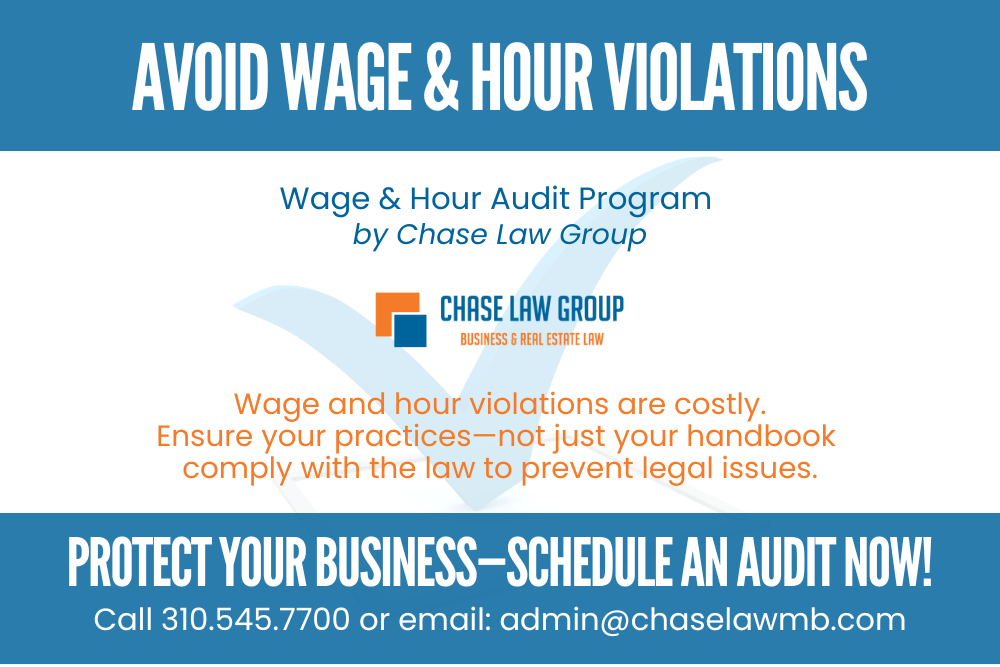
California has some of the most employee-friendly labor regulations in the country, which can make it challenging for employers to navigate. In particular, wage and hour violations can lead to significant penalties and exposure for both small and large businesses. While employers often believe they have met their wage and hour obligations by issuing a legally compliant employee handbook, they often fail to ensure that their actual wage and hour practices align with all labor code requirements, leaving them exposed to costly employee claims and lawsuits. By periodically having an experienced employment attorney review their practices, employers can identify discrepancies... READ MORE
Protecting Your Brand: Why Trademark & Copyright Matter for Your Business
By Admin January 29, 2025 Category: Trademarks & Copyrights

Your brand is one of your most valuable assets, yet many businesses fail to take the time or invest in trademark and copyright protections—often believing it’s unnecessary or too expensive. The reality? Skipping these steps can cost you far more in the long run. Without legal protection, you could face copycats, brand confusion, legal disputes, or even the loss of your business identity. Trademarks vs. Copyrights: What’s the Difference? Trademarks protect your business name, logo, slogan, or other brand identifiers that distinguish you from competitors. Registering a trademark ensures no one else can use a confusingly similar mark in your... READ MORE
Why Every Business Should Start the Year with a Contract Review
By Admin January 29, 2025 Category: Business Law

As business attorneys, we see it all too often—contracts that are outdated, unclear, or worse, unenforceable. A contract is meant to protect your business, yet many companies operate with agreements that haven’t been reviewed in years. As we step into 2025, now is the perfect time to give your contracts a fresh look and ensure they’re working for you, not against you. Why Contract Reviews Matter Laws change, business relationships evolve, and what worked a year ago may no longer be in your best interest. In California, new laws taking effect in 2025 could impact employee rights, workplace policies, independent... READ MORE
2025 IRS Mileage Rate Increase: Use of Personal Vehicle for Work
By Admin January 29, 2025 Category: Employment
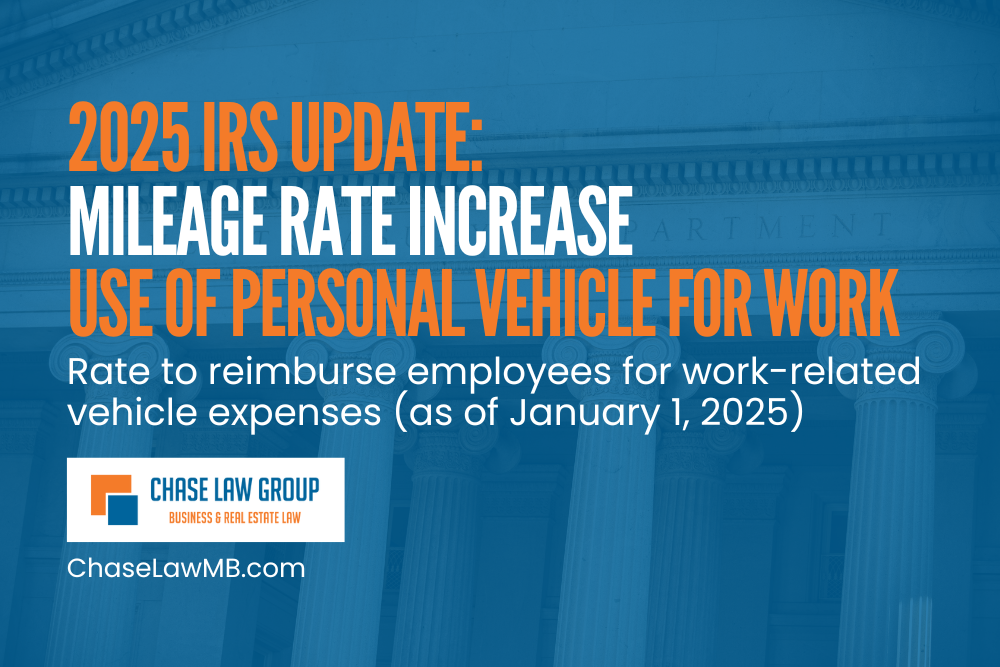
Effective January 1, 2025, the standard mileage rates for use of a car, van, pickup, or panel truck will be 70 cents per mile, which is an increase of three cents from 2024. Therefore, employers are advised to reimburse employees who use their own personal vehicle for work purposes based on this new IRS rate, as it will be deemed reasonable and sufficient for purposes of reimbursing employees for work-related expenses pursuant to Labor Code section 2802. Alternatively, if employers use some other method for reimbursing their employees for the use of their personal vehicle for work purposes, they must... READ MORE
Update on Corporate Transparency Act: BOI Reporting No Longer Required for U.S. Businesses
By Admin January 01, 2025 Category: Business Law
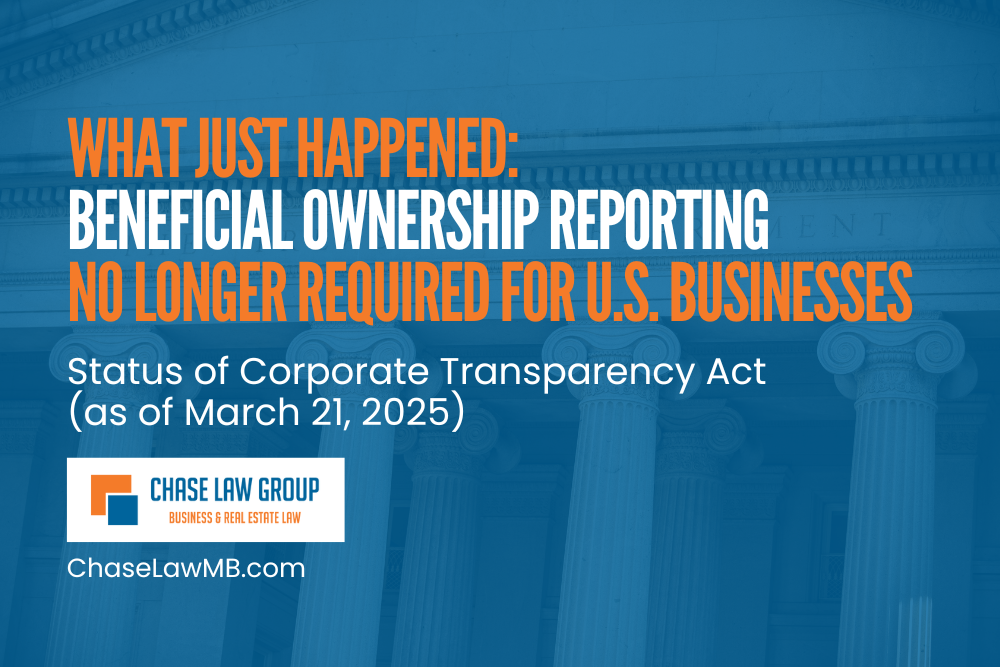
MARCH 21, 2025 UPDATE Consistent with the U.S. Department of the Treasury’s March 2, 2025 announcement, the Financial Crimes Enforcement Network (FinCEN) is issuing an interim final rule that removes the requirement for U.S. companies and U.S. persons to report beneficial ownership information (BOI) to FinCEN under the Corporate Transparency Act. What’s Changed?Only foreign companies that register to do business in the U.S. are now required to report BOI.U.S.-formed companies (formerly called "domestic reporting companies") are exempt. What This Means for You:If your business was formed in the U.S., you no longer need to file BOI reports with FinCEN.U.S. persons... READ MORE
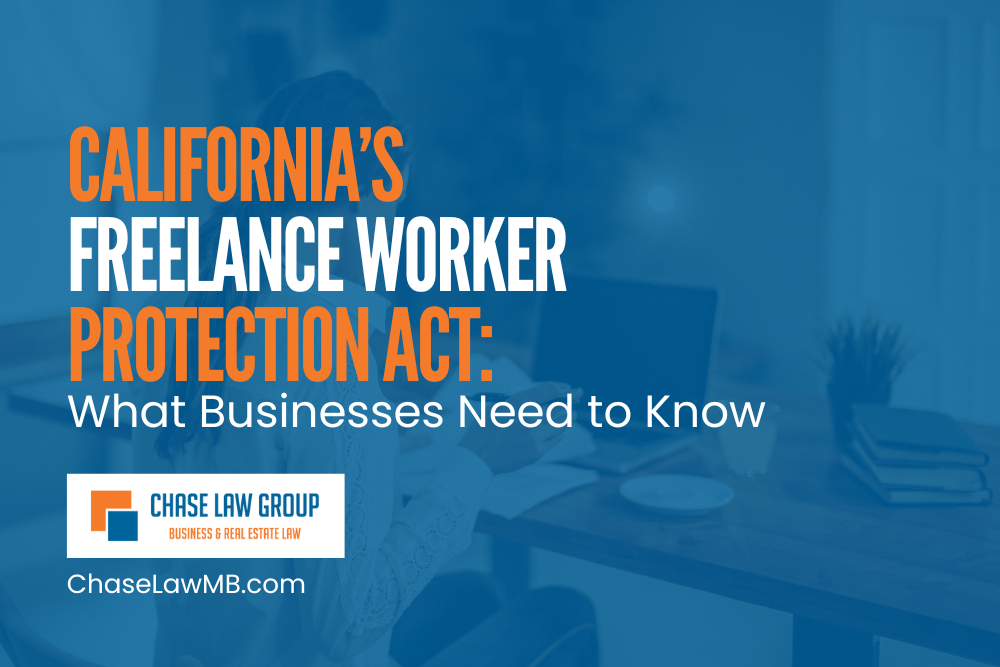
California is once again leading the way in labor protections, this time with the Freelance Worker Protection Act (FWPA), which takes effect on January 1, 2025. If your business hires freelance workers, it’s time to prepare for significant changes in how you engage with independent contractors. Here’s what you need to know about the FWPA and how to ensure compliance. The Basics of the FWPA The FWPA establishes baseline protections for freelance workers and applies to contracts worth $250 or more. These protections include requirements for written contracts, timely payment, and anti-retaliation measures. Inspired by a similar ordinance enacted in... READ MORE
California Minimum Wage Set to Increase Effective January 1, 2025
By Admin December 02, 2024 Category: Employment
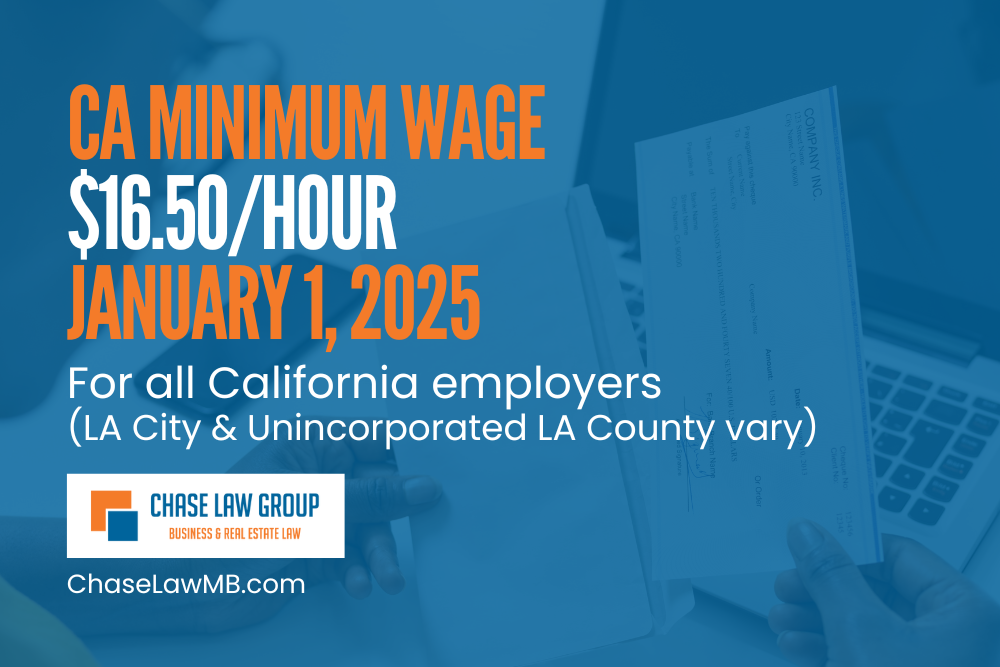
Although Prop 32, which would have increased California minimum wage to $17.00 for smaller employers and $18.00 for larger employers narrowly failed to pass earlier this month, California minimum wage for all size employers is set to increase to $16.50 effective January 1, 2025 pursuant to already existing legislation. Additionally, as a result of this change in minimum wage, the minimum salary for exempt employees will increase to $68,640 or $5,720.00 per month. If exempt employees are not paid at least this much, they will not qualify as exempt. Also, note that minimum wage for the City of Los Angeles... READ MORE
New Opportunity for At-Home Food Businesses: Legal Permitting Program Launches November 1
By Admin October 29, 2024 Category: Business Law

The Los Angeles County Department of Public Health has announced a new pathway for home-based food entrepreneurs. Starting November 1, the Microenterprise Home Kitchen Operation (MEHKO) program will allow residents to prepare and sell food directly from their home kitchens, operating as small-scale “mini restaurants” under state law. For aspiring home chefs, this program is a game-changer. The permitting process for MEHKOs opened on October 7, creating a formal route for home-based food businesses to legally serve the public while meeting health and safety standards. Each business must be operated by a resident in their own kitchen, allowing for the... READ MORE

